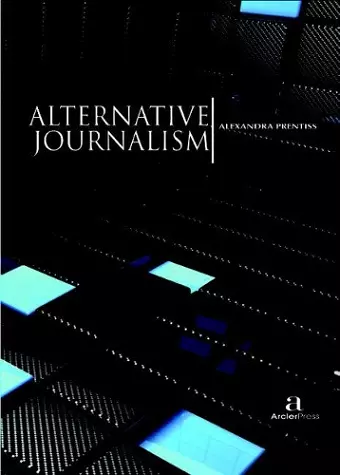Alternative Journalism
Format:Hardback
Publisher:Arcler Education Inc
Published:30th Nov '16
Should be back in stock very soon

It goes without saying that, in 2016, alternative journalism has become integral to the global news landscape. If we consider traditional journalism to be news and stories related to the public by news professionals, then alternative journalism consists of news and stories that are related to the public by non-professionals.
Both traditional and alternative journalism have adapted to the various media platforms that have proliferated in the last decades, including social media, online blogs, in addition to the more traditional media sources of newspapers, television, radio and other print media. So, the point of differentiation is in who is disseminating information, in addition to how or by what means. WikiLeaks and other whistleblowers, social networks, blogs, and other non-traditional forms of communication proliferate, and anyone has the power to both access and use them. We often think of citizens as the ultimate alternative journalists, but other discursive actors are at work. Governments, corporations, and other parties who have a vested interest in disseminating certain information while omitting other information are now producers and have the power to, for example, place magazine advertisements in the guise of news stories, raising the issue of trust and bias.
In this book, we will examine alternative journalism in its many forms and how it, like traditional journalism, can shape audiences’ attitudes and behavior in an increasingly complex public sphere.
The boundaries between audience and journalist have blurred. Twitter, discussion forums, blogs, and even comments sections on news websites - all contribute to the power of the audience to shape journalism, and thus current events. We will begin this book with an examination of blogs and how they have been used as alternative journalism platforms in disparate contexts. Advocacy for social issues has been facilitated by blogs; in “Hyper-Local Environmental Bloggers,” environmental issues on a local scale have been brought to the world’s attention via blogs. “Blogging in Russia” tracks the rise of blogging in Russia, and why it is so important. Because the state controls most traditional media outlets in Russia, blogs have emerged as a “counter-sphere”, in which public discourse is encouraged and information can be freely exchanged. In China, as in Russia, where most media is controlled by the state, blogs have sprung up...
ISBN: 9781680945065
Dimensions: unknown
Weight: unknown
306 pages